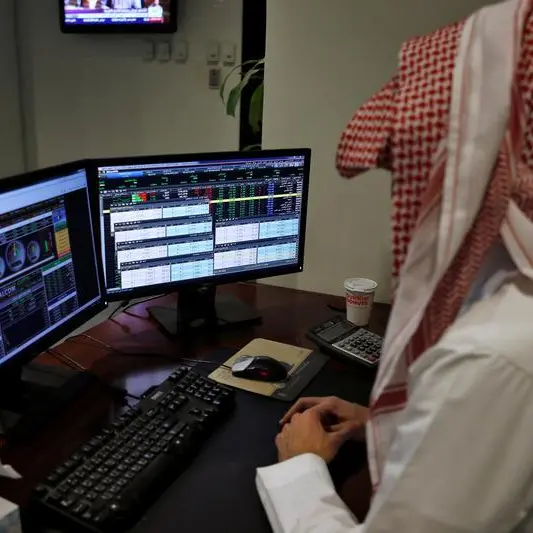PHOTO
Soaring oil revenues, faltering asset prices and a strong dollar have spurred Gulf sovereign wealth funds (SWFs) to make a flurry of foreign acquisitions and investments this year.
The Gulf is home to four of the world’s 10 largest SWFs by assets under management (AUM). According to the Sovereign Wealth Fund Institute, the Abu Dhabi Investment Authority (ADIA) has an AUM of $708.8 billion, the Kuwait Investment Authority (KIA) has $708.4 billion, Saudi Arabia’s Public Investment Fund (PIF) has $620 billion, and Qatar Investment Authority (QIA) has $450 billion.
In 2022, ADIA has agreed to invest in various Indian real-estate projects and take a sizeable stake in a German train carriage owner; it also reportedly offered to buy an Australian healthcare firm. The PIF nearly tripled its holdings in US listed companies year-on-year and bought a minor stake in a Jordanian bank. On Monday, PIF invested more than $7 billion to take new positions in US stocks including Amazon.com Inc., Alphabet Inc. and JPMorgan Chase.
The QIA has agreed to invest in an Istanbul road toll, pledged up to $1.5 billion to a new investment fund for South Asian tech firms, and upped its interests in biotech. Another Abu Dhabi SWF, Mubadala, has also bet big on computer software, hardware and biopharmaceuticals.
These moves came as oil prices hit a 14-year peak in March and held above $100 a barrel, while the dollar reached parity with the euro and jumped to historic highs against many other currencies, such as the Japanese yen, Turkish lira and Indian rupee. Stock indexes in emerging and developed markets have tumbled, hurting valuations for both public and private companies.
“Sovereign wealth funds have increased activity internationally, boosted by far more injections from the state as oil and gas revenues soar,” said Akber Khan, Senior Director of Asset Management at Al Rayan Investment, Doha. “Expanding government budget surpluses translate to enlarged sovereign funds. Happily, for them, asset prices outside the region are increasingly attractive, especially when looked at in dollars.”
Effects of rate hikes
Recent interest rate hikes will help SWFs that have already invested in infrastructure assets, which are largely protected from rising inflation as asset operators raise prices, such as rents and transportation fees, accordingly.
“Rising interest rates will deter SWFs from increasing their exposure to riskier asset classes, such as venture capital, and encourage them to invest in safer asset classes that will now provide a better return, such as bonds,” said Javier Capapé, Director of Sovereign Wealth Research at Spain’s Center for the Governance of Change, IE University. “Over the past three to four years, a number of SWFs entered into riskier asset classes, but this will probably pause for now.”
SWFs are important diplomatic tools for their Gulf owners, according to Diego López, Managing Director of consultancy Global SWF.
“Some of these smaller states have traditionally been able to exert soft power at global scale because of their purchasing power, and this is normally channelled through their SWFs,” he said.
“Gulf SWFs are going back to the mega-deals,” said Lopez, noting the average deal size has increased this year, with 33 transactions for $1 billion or more in the first six months of 2022. “This is certainly an effect of SWFs trying to increase their allocation to private markets very rapidly.”
Gulf SWFs have formed co-investment partnerships with state organisations in destination markets to invest in major projects. For example, the ADIA has participated in funds run by India’s National Investment and Infrastructure Fund (NIIF). “These partnerships typically create new companies or invest in privately owned projects, from infrastructure to big real-estate developments,” said Capapé.
“Gulf SWFs now have the in-house talent to co-invest and directly invest in private markets abroad,” he added. “More generally, they’re happier to play the private markets and keep assets private for longer periods. Sovereigns have been a big part of this long-term move among institutional investors towards private markets.”
Gulf SWFs increasingly want their international investing to benefit their domestic economies. For example, Daimler AG runs an engineering training programme in Kuwait, while the KIA is a major investor in the German automaker. Mubadala has a longstanding partnership with Airbus that has created hundreds of skilled jobs for Emiratis at the conglomerate’s aerospace facility.
“Connecting that with venture capital, we’ve seen Gulf SWFs investing more in US big tech and inviting these companies to establish regional headquarters in their home cities,” Capapé added. “SWFs are competing with each other for these tie-ups.”
(Reporting by Matt Smith; editing by Seban Scaria seban.scaria@lseg.com)
